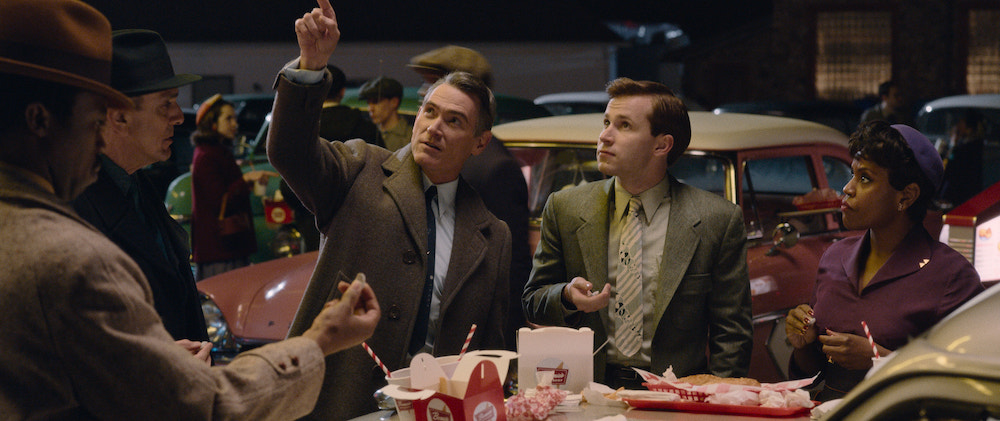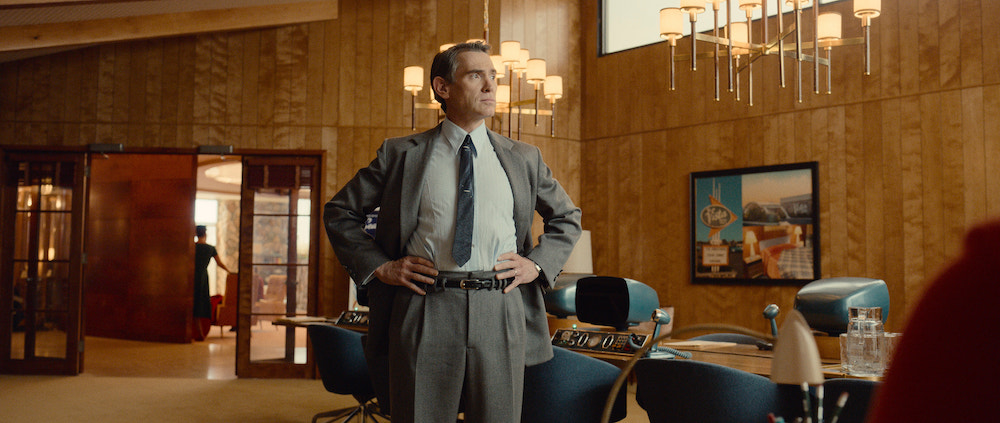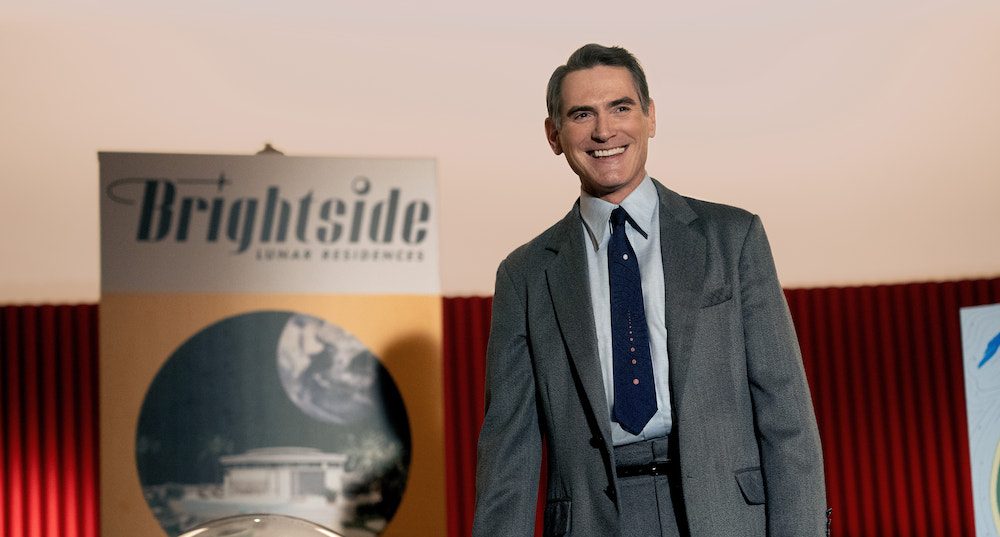Apple TV+’s ‘Hello Tomorrow!’ is a retro-futuristic TV show that follows the story of a traveling salesman named Jack Billings. Played by Billy Crudup, Jack’s job is to convince people to buy “lunar residences,” their own place on the bright side of the Moon. He has been doing this for a long while, but things get complicated for him when he comes to the town where his long-estranged wife and their son, Eddie, have been living. Jack tries to build a relationship with Eddie by bringing him into the business too.
But no one, including the salesmen who work for Jack, knows that he is running a scam. Created by Amit Bhalla and Lucas Jansen, the show creates the picture of a world that is technologically developed but still grapples with the everyday issues of life. If you are wondering whether the creators of ‘Hello Tomorrow!’ sought inspiration from any real-life people or incidents, then we’ve got you covered.
Hello Tomorrow! is an Original Work
No, ‘Hello Tomorrow!’ is neither based on a true story nor a book. It is an original story created by Bhalla and Jansen, who were inspired by “the training videos made for car salesmen in the ‘50s”. Calling them “these holy texts of capitalism”, the duo started to create a story around a character who is “a very powerful, very engaging and charismatic salesman who also lived sort of poised over a chasm of crazy, disastrous possibilities.” The main idea was for this person to be selling “the American dream”, giving people the hope for a better future, while also believing in the same thing for himself.

Wondering what salesmanship and the dream of a new future would have looked like during the 50s, they decided to add a new layer to their fictional world, making it look like a utopian society where technology is so advanced that buying plots on the Moon is not a far-fetched idea. Elaborating on the concept, Lucas Jansen said, “Utopias terrify us. The ‘bots can do a lot for you, but they can’t relieve you of your human burden. And we’re ever so grateful and would hope that that continues to be the case as our society progresses.”
They were, however, also aware of how hollow and terrifying this world could be. And that’s where Jack Billings comes in. Calling the show a mash of ‘The Jetsons’ vibe and ‘Death of a Salesman’ philosophy, Billy Crudup, who also serves as producer of the show, found Billy just as eager to believe his own pitch as the people he’s selling it to. “In Jack’s mind, providing that hope is proselytizing. That is the good word. The good word is the future because the present is so mundane, it’s so boring. It doesn’t have any of the American promises. It just has the reality of living,” Crudup said.

In portraying the role, he drew from his father’s experience as a salesman, who he revealed, was also a hustler at times. “The character of Jack in particular just felt so much like some of the language my dad would use, and [I felt’] the opportunity to try to find my version of Jack there. He [Crudup’s father] had all these kinds of ways of relating to people that were awful for us growing up. But now, when I reflect on it, I see that it was that he loved people, he was curious about people and it didn’t matter who it was,” the Emmy Award-winning actor said.
He added, “So that was the feature that I wanted to bring to Jack at the core of this storytelling…A real affection for humanity in all of its ranges.” Explaining the point that the story tries to make, Crudup said: “If it was like this in the future, would this be what we want? If this was actually what it was like in the past, would that have been what we wanted? What is the sweet spot for being content at being a country with enormous capacity and with enormous flaws? How do we improve things and how do we recognize what’s glorious about it?”
Hoping that the audience enjoys the show, he also wishes that they “begin to reflect a little bit on what your point of view is about it.” With this in mind, it is clear that despite its futuristic looks and people seeking a better future on the Moon, ‘Hello Tomorrow’ remains rooted in human emotions making the story relatable to the audience.
Read More: Where is Hello Tomorrow! Filmed?


You must be logged in to post a comment.